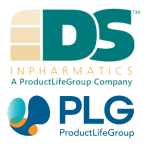Any pharmaceutical business appreciates that the majority of drugs do not progress to the clinic, so only a few kilograms of a product are included in the early stages of the medical chemistry process.

Image Credit: DSI, a PLG Company
If the drug does enter the clinic and the process is successful, the volumes suddenly reach metric tons or more, and the safety and manufacturing processes are altered.
For growing biotech organizations that may have utilized a small med-chem contractor to manage limited-scale active pharmaceutical ingredient (API) development, this frequently means that a new vendor must be found.
This can be challenging for a business with no experience with contract manufacturers and may be looking to progress up to Phase II.
Asking the right questions
Senior Project Management Consultant at DSI, a ProductLife Group company, Rick Offerman Ph.D. states that it is critical to begin conversations with multiple CMOs and ask them important questions, such as determining if they have experience in taking Phase I processes and translating them into commercial production.
They should then be asked to evaluate the process and explain what issues have been identified.
If they find that methods are being employed that will not convert to large-scale production, they should be asked what alternative techniques could be used instead. The business should allow the CMO to explain their strategy and then evaluate the information they have been given.
In early med-chem, the solvent type utilized is not always critical because it is chosen for its functionality.
As a company progresses to Phase II and the later stages, issues must be evaluated such as whether the solvent is difficult to dispose of, toxic, or if there are environmental regulations on the quantity of solvent that can be utilized in the plant, along with the price of the solvent.
When you go to a competent CMO, they'll start screening a lot of solvents, and they will propose simple screening experiments to determine yields and impurity profile. Cost is always a factor, but it's not the major one. The bigger priorities in manufacturing are using a minimum number of solvents, readily available solvents, and solvents that are easily disposed of. Most important is a solvent that won’t change your product profile.”
Rick Offerman Ph.D., Senior Project Management Consultant, DSI, a ProductLife Group Company.
When a CMO is chosen, a business should evaluate its background with a particular solvent and decide if it can process it in larger quantities.
“Also, get a sense of how many processes have been taken through to commercial because that's why you're going to a CMO,” Rick explains.
“You’re paying for expertise when you go to a CMO, and that expertise includes manufacturing, engineering, and troubleshooting.”
The regulatory record of the specific facility is another important factor to consider. Evaluate its most recent inspection, the result and whether they received any warning letters.
A holistic process
There are multiple measures that must be considered when a sponsor business moves to a new process and location.
Comparability agreements will need to be adopted to confirm the same impurities are received. If those impurities vary, work must be performed to establish what influence they could have in the body or on the drug.
“It's a big regulatory exercise to demonstrate that the new process is producing a comparable product to the old process,” Rick adds. As CMOs do not usually have several regulatory personnel on site, a small biotech organization may need to obtain external guidance to assist in these procedures.
Formulation personnel may also be required to solve possible challenges when solvents are changed. It is critical to have a unified approach across the process to establish the impurity profile, the API and support variations that emerge in the regulatory chain.
When scaling up manufacturing, challenges will always be encountered by companies, for example, the length of time the API is in the reactor may be different, or the heat histories may be different, for example.
Bringing experts together to present solutions and address challenges helps to solve a greater number of issues and drives improved efficiency.
Cost, regulatory expertise and quality are the three main factors to consider when choosing a CMO. Regulatory history and quality are worth investing a higher amount in, Rick states, because a product may never launch out of the facility if an inexpensive CMO has a critical regulatory issue.
“Recently, there has been a lot in the news about nitrosamine contamination in drugs and it appears that there were process changes that were being carried out by CMOs that were never approved or documented,” Rick notes.
“They decided it was cheaper to go with another solvent, but they didn't look at the ramifications. Whether you're a big drug company or a small biotech company, if you've got a drug that's contaminated with nitrosamine you have to pull your product off the market. It's a bad situation to be in cost-wise.”
While it is essential to place trust in the CMO and their capability to meet and deliver timelines, it is still crucial to have a project manager evaluate the Gantt chart or timeline on a weekly basis with a team, or some elements may be missed.
When selecting a production partner, there are a number of things to take into consideration. The CMOs must be asked the correct questions to confirm the processes match with the business.
For example, asking questions to ensure the supplier of raw materials can be relied upon to deliver on time to make sure the manufacturing slot is not missed, or that the CMO has the correct experience and understands how to identify and respond to a challenge.
The business should ensure collaboration and continual supervision of the project, and research should be undertaken on the CMO. Cost is important, but regulatory expertise and quality must always be the main considerations.
Acknowledgments
Produced from materials originally authored by Meranda Parascandola from Design Space InPharmatics.
About DS InPharmatics 
DS InPharmatics (DSI) provides regulatory, technical, and project management consulting services to healthcare product companies that manufacture and/or market pharmaceuticals, biopharmaceuticals, and cellular and gene therapy products.
Since 2007 we have provided our clients with innovative strategies and exceptional quality work products intended to enhance product development, approval, and marketing presence. Whether advocating CMC strategy, directing CMC operations or developing CMC submission content that represent the best interests of emerging biotech, we focus on the critical CMC issues and build programs that enhance development.
In April 2021 we were thrilled to announce that DSI has just become part of ProductLife Group.
French-headquartered ProductLife Group (PLG) is well-known in the Life Sciences market. It has a track record of successfully managing global outsourcing programs and insourcing services for its international client base. The company is on a mission to help transform human health outcomes by optimizing regulatory affairs, safety & vigilance, and quality compliance for life sciences organizations worldwide.
The fit between our two organizations could not be more perfect. We will complement PLG's growing biotech services portfolio. US biotech sponsors recognize DSI as a leader in consulting for go-to-market strategies and RA pre-market consulting. At the same time, PLG has a strong reputation for managing end-to-end outsourcing of regulatory affairs and pharmacovigilance activities worldwide.
Our merger with PLG will harness our combined strengths, offering our clients on both sides of the Atlantic support with their developed drugs approvals and post-approvals compliance, plus advisory services on the best market strategies to deliver a rapid ROI on their development. Together we will offer our clients increased pharmacovigilance capabilities - including a QPPV; pharmacovigilance consulting; and a fully validated safety database - as well as complementary toxicology-related services; RIM/electronic document management services; and support for medical device regulatory requirements.
We see enormous potential in this new chapter for DSI and you, our clients. As a PLG company, we have the opportunity to become part of a global force in life sciences regulatory and compliance solutions and services, and we're incredibly excited to add our momentum to that effort.
Sponsored Content Policy: News-Medical.net publishes articles and related content that may be derived from sources where we have existing commercial relationships, provided such content adds value to the core editorial ethos of News-Medical.Net which is to educate and inform site visitors interested in medical research, science, medical devices and treatments.